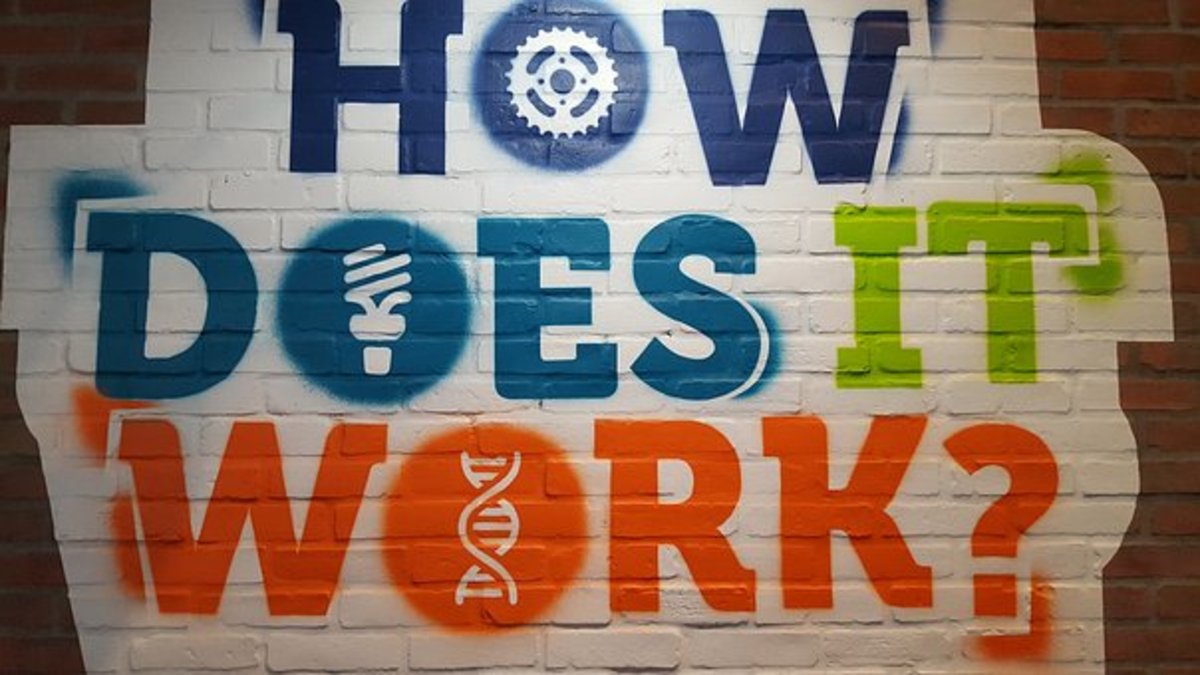the what and why of critical thinking

You already know how to think. But to be critical in your thinking (not critical of your thinking) will assist you in life and work, expanding your mind and actually feeling those little gray cells grow as you do your mental reps.
Let's say you are watching TV, and an ad comes on for Aspirit aspirin - four out of five doctors recommend Aspirit for their patients' headaches. Right after that comes an ad for Nomopane aspirin - given to patients with headaches by 75% of doctors. What's wrong with this picture? But if the ads were separated by ten minutes of the X-Files, would you have noticed?
The sponge approach to learning is the method used by small children, usually through fifth or sixth grade. All they had to do was repeat back what they were told. But then they start questioning things; their lives reach out beyond their homes and school. Some people keep the sponge attitude, only exchanging their parents' views for their peers' opinion. College students tend to adopt whatever view is in the latest book that they read. This is not critical thinking.
I recall a time when I worked at a community college. A nice young man was working on an assignment for my friend Peggy's Sociology class, analyzing an article the class had read. Feeling, as I often do, like the Devil's Advocate, I started challenging the ideas this young man was worshiping. Then in the teacher's lounge I ran into Peggy and proudly announced to her what I'd done. She wasn't happy - the next article that the students were going to read was just as persuasive in the other direction, and she wanted them to realize how easily they were led in both directions - they were not thinking critically!
As in Peggy's class, it is not my purpose to change anyone's opinion, but rather to open his/her eyes a little to the variety of ideas equally good. And at the same time, s/he should be able to discern when it is not necessary to do so. I don't think you should ask "Who cares?" Although I find that a really handy question, it tends to be taken as snide, so I prefer to ask "Do I care?"
Anyone who has taken part in a debate team understands the suggestion that you should defend the side with which you disagree - it is only in that way that you will really look clearly at your own beliefs, as well as the other person’s.
Which segues very neatly into my next point - interpretation of common words. I once saw quite a 'discussion' on whether "common sense" exists and what is it. What we each see as a normal term can become quite complex if you look into the meaning of "common" for instance - does it mean banal? Widely accepted? Horse sense? Practical? Plebian? Yet it is, if I may say so, a common phrase. I have also seen people react very poorly in this asynchronous environment to harmless
comments, because of the ambiguity of terms. Many professions require the person be careful of tone. So, what is tone? It's how words that are written are interpreted by others. If I type "that's bad!", it sounds like a criticism - when I might mean it as the slang for "very good", which would have been understood by my voice inflection in person.
My mother used to always tell me "believe half of what you read and none of what you hear". I think, with the influx of the World Wide Web, we must drop that half down to maybe 20%. There are no laws governing the Internet, so we must be even more diligent to take anything published on the Web with a huge grain of salt (heck, a whole slab!)
Ambiguity of key words and phrases can have the opposite effect to what is intended. For instance, I was answering a political poll recently (in our state there were a lot of close races.) Of course I was not told which camp was running the survey. Then came a question that changed my whole view:
"If you knew that Edith Prague has [this was followed by a bunch of rude, unsubstantiated accusations], would you vote for Peter Nystrom, who has pledged to undo these inadequacies?"
Well, my reaction was to say that it was obvious Mr. Nystrom's campaign was running this survey in an attempt to smear Ms Prague - and I will now vote for Ms Prague in her defense! This is like asking a man how often he beats his wife.
Surveys and evaluations are an art, to be sure you don't shade the questions in a way that would urge the person taking them into a particular position.
You may have heard that it is customary for counselors to repeat back what a person says, and probably thought it was a way of forcing the patient to expand on a statement without putting the patient on a counselor-decided path. But it is a good habit when you are trying to understand someone, if you restate the other person's statement in your own words - this is how you make sure that you are both understanding the same meaning to the words spoken. Replace the questionable word with another word that means the same thing in your interpretation - and see if the speaker agrees. We did this in a faculty meeting about a phrase by Einstein which used the term "prejudice" in what appeared to be a rather down-on-people way - but if we substituted the term "preconceived ideas" his statement was rather innocuous.
Clarifying which studies should be used as references is another way in which we get suckered in to a position. Everyone has a fistful of studies that back up his/her position. Perhaps the most dangerous is the press - they will read some UPI report of a medical study and turn it onto a campaign. Witness, if you are old enough, the deal with Saccharin. When diet sodas came out in the 50s with Saccharin in them, it was a great break for all the Stepford housewives. But a study was published in one of the medical journals suggesting that Saccharin caused cancer in mice. The press got hold of this abstract and publicized it; diet sodas were literally pulled off the shelves in a week. The FDA jumped in and deplored this attack on the public. This of course broke the hearts of all who would have to drink water instead. Eventually someone looked closely at the study and found out that the study was only on rats, and the quantities were so large that a normal person would have to drink 30 GALLONS of diet soda a DAY for 3 WEEKS to match the rats who came down with cancer. Thirty gallons of coffee would probably do the same thing. Whew! Diet sodas came back!
Way back in my hippie days we had a phrase - "Never make value judgments". A lot of times controversial phrases point to value judgments. A value judgment is when you attach a "value" to something, such as "All 10-year-olds are nasty kids", or "Three piece suits identify people who are slaves to society," or "All girls are pretty when they are 16." Not only are these generalizations, but they put a negative or positive value on the people involved. The truth is close... 10-year-olds tend to be stretching their wings and trying to 'cut the cord', which makes them a little trying. People who wear 3-piece-suits are probably in a profession that requires a certain demeanor and presentation of the person. Most 16-year-old girls may not feel pretty, and many stunning actresses state that they were considered homely and skinny in high school. But the addition of that word "all" is very unfair.
But can we do away with value judgments altogether? No. Can we live with some assumptions and biases? Yes, as long as we have first looked at them critically to be sure they weren't just sponge collections.
There is a nice little test for determining if a term is ambiguous -- try to create a picture of what the ambiguous words represent. It works! You cannot envision "productive" or "quality" or "patriotic". There are also loaded phrases. I call them euphemisms - synonyms that mean opposite things. My mother is a vision; your mother is a sight. You may be obstinate - I am simply single-minded in pursuit of the truth.
One of the problems with popular debates is that they are based on two conflicting value assumptions. Pro-choice vs. pro-life; life sentence vs. execution; federal grants for 'objectionable' art, states' rights vs. federal involvement vs. individual rights; helmet and seat belt laws. The list is very long. The answer is never clear, and these value assumptions are often obscured by emotion and rhetoric. To top it off, the question is rarely which side has value - but how important the values of one side are over the values of another side. Not easy pickin's here. Let's make it worse - these values may shift in importance in a different context. For instance it is contended that the same people who support abortion will tend to fight the death penalty. One way to reach the value assumptions of a person is called "consider the source" - what does the person have to gain from this position and what about this person would cause him/her to take such a stance? If someone is complaining about the management - is that person a union activist?
Please be aware - we are NOT putting a value judgment on assumptions! We are merely trying to identify them and their influence. Throughout our lives, we make assumptions based on our experiences. If I fall out of a fourth-story window, I will crack my head. If a person twice my size hits me I will hurt. If I run with scissors in my hand, I will poke my eye out (OK, that's my mother's assumption...) If I don't pay my bills, they will repossess my car or evict me. If I don't eat, I will be hungry. Etc., ad nauseum. It is not necessary to remove all assumptions, but it is necessary to give them a good healthy look; a viable assumption will stand up to analysis. And by recognizing others' assumptions, we get a better view of how and where to aim questions and arguments - as well as what ones are futile.









